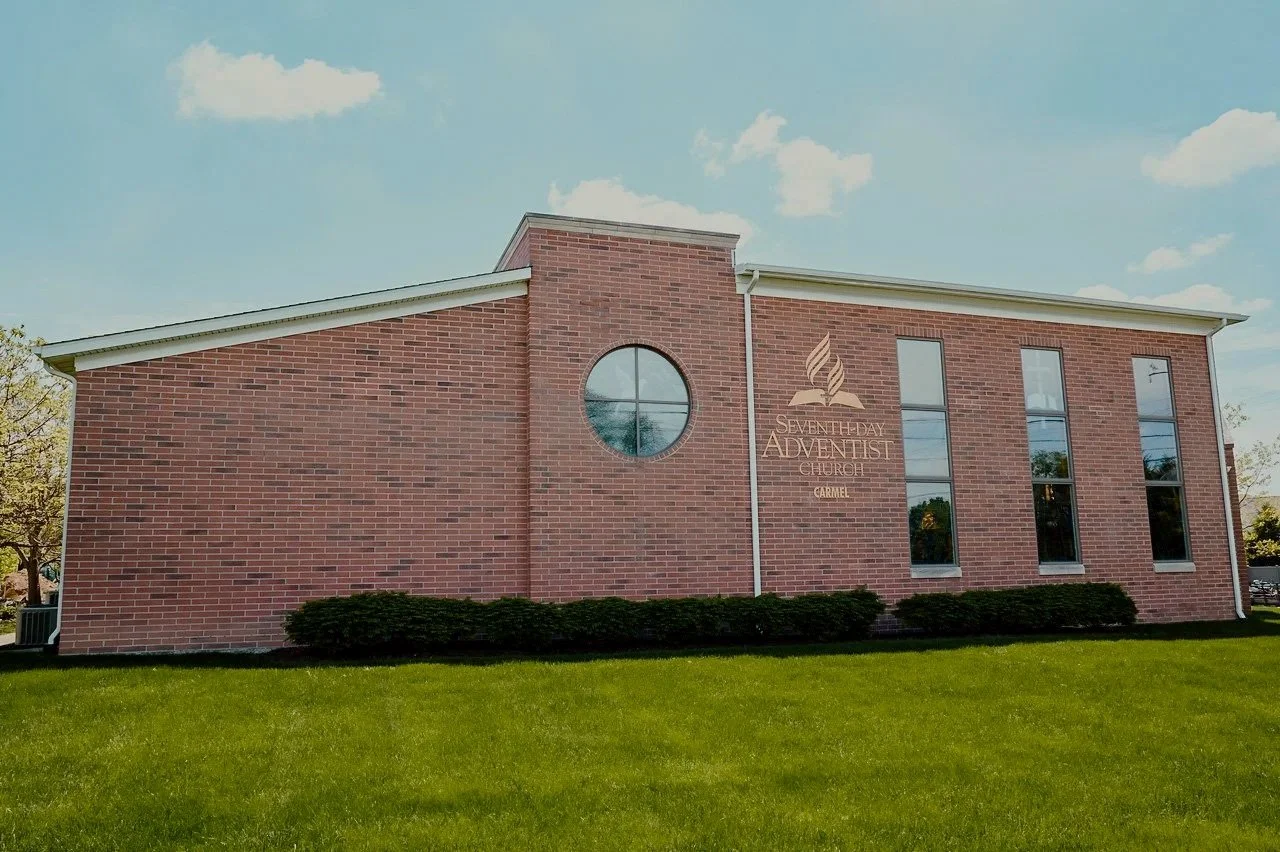
Get to know us
Seventh-day Adventism is a diverse, global faith community with approximately 25 million members and a missionary presence in over 215 countries. Rooted in Reformation Protestant beliefs, Adventists uphold the Trinity, the authority of Scripture, and the observance of Saturday as the biblical Sabbath.
Committed to service, Adventists operate the world’s second-largest private education system, extensive healthcare networks, and humanitarian efforts through ADRA. A plant-based diet and healthy living are also central to our faith.
USA Today (March 17, 2011) recognized Adventism as the fastest-growing denomination in the U.S. The church follows a governance system similar to the United Methodists, with its General Conference based near Washington, D.C., overseeing 13 world divisions.
Servant Leadership
Pastor Jerryn
The Schmidts joined the Carmel Church family on March 4, 2023. Pastor Jerryn has a passion for preaching, explaining the prophecies of the Bible, and leading others into a deeper relationship with Jesus. At age 14, he sensed God calling him to the ministry and has been involved since age 17. After years of serving as a Bible Worker, giving Bible studies, and assisting churches in reaching their communities, the pastor entered the ministry in 2013. Pastor Schmidt desires to share God’s amazing love with as many people as possible in his role.
Frequently asked…
Investigate for yourself the Adventist church, not relying on others to provide your source of information. You will find Adventists a deeply committed Christian group doing its best to fulfill Christ's parting command that we go to all the world carrying the good news of His saving grace and His return in glory to take His children to the Kingdom.
-
First of all, we sense that we need to come into harmony with Jesus. We cannot deal with all the problems of life by ourselves, and He promises to be with us, especially in rough places. When we repent of wrongs, He gladly forgives us and provides the strength to overcome temptations. And in the end, He promises an eternity in a perfect Kingdom.
So we come in humility, asking Him to accept us into His followers, and upon making that decision, we become one of His people. But living for Jesus requires knowledge of who His is and how He would have us live, and we read the Bible to learn that.
The gospels, Matthew, Mark, Luke, and John, all are reports of Jesus' ministry. The people among whom He worked had the idea they had to be perfect in obedience to God’s law or they would be rejected. Jesus tried to assure them that God is merciful, forgiving, and always there for us if we really love Him. Jesus had His followers join together to worship and fellowship as churches. That is still His plan.
-
Our biblical review shows how true Sabbath observance is a means of showing loyalty to God, of keeping Him foremost in all that we do, especially on His day. This lifts us above merely repeating ritual prohibitions such as the Pharisees' system. However, it never replaces the divinely-given principles that mark true observance.
The secularized modern world disregards the Sabbath as just like any other day, which is open defiance of God's expressed will. This places a strain on those devoted to God's will. How will the loyal Christian respond?
We recognize that biblical values acknowledge the sacredness of the seventh day, beginning at Creation and remaining in effect to the end of the world. True faithfulness to God means heart loyalty to our Creator, which expresses itself in willing obedience to His biblical principles.
-
The biblical answer is that it depends on a person’s circumstances. If he has limited light, he may not even know of God's fourth commandment, yet he is still open to God's guidance. The Apostle Paul assures us this kind of person will stand in the judgment. He is redeemed by Christ's justifying sacrifice.
On the other hand, if I know well what God would have me do, and despite having received justification by faith, stubbornly refuse to follow what I know is God's will, my persistent rebellious attitude can sever me from Christ. This theme is repeated numerous times in the Scriptures.
Because we all have varied experiences that do not necessarily appear on the surface, only God can know the seriousness of our commitment to Him, and He alone can judge. This factor enters into our answer about Sabbath observance. The Scriptures tell us it is His will. What we do with it depends on the state of our hearts. Justification is the gift of God to all those who love Him, and obedience is the evidence of love.
-
While the Sabbath time belongs to God, it provides a chance to experience wholesome God-provided activities that glorify Him and enrich our lives.
Proper use of the Sabbath hours strengthens our knowledge of Him, increases family bonds, provides time for outreach to others on spiritual and friendship themes, makes time for reading biblical and uplifting themes, helps us observe the wonders of God’s creation in nature around us, allows for compassionate visits to disadvantaged persons, and encourages a host of similar activities harmonious with the spirit of the Sabbath.
-
Adventists do not well fit the current use of “cult”. The very name of the church, “Adventist,” is a focus on the second coming of Christ, which is found in virtually all the creeds of traditional churches. The Seventh-day part derives from the apostolic practice of observing the seventh day as sacred time, following the instruction of the Creator (Genesis 2:2,3), and repeated in the fourth of the Ten Commandments (Exodus 20).
It is a serious effort to follow the actual teachings of the Bible that leads Adventists to depart from the tradition on which Sunday observance rests. It is for this departure some people apply the word cult to us. The teachings of our church rest firmly on the Scriptures themselves.
We are dedicated Christians with faith in Jesus as the sole source of salvation, and a way of life living for Him as taught in the Scriptures.


